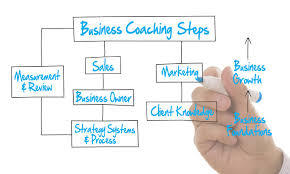In the Participation Age, a new form of payment is emerging: time.

Richard Branson gives Virgin employees unlimited vacation. He’s either nuts or knows something others have yet to discover: You’ll make more money if you give people their time back.
Why we trade time for money.
The Industrial Age taught us the only way to make money was to trade time for it. The deal was clear, and always the same: You give me eight to 10 hours of your day, and I’ll give you some money. But in the Participation Age, something new is emerging. Companies are realizing that when you give people back their time, they will make you more money. It seems illogical, but it’s really quite intuitive. As usual, Branson is moving on an idea that traditionalists will discover only by watching him and other early-adapters in action.
Why would unlimited vacation work?
Why give up on a vacation system that’s been in place for 170-plus years? Because it was a bad idea then, and with a workforce that did not grow up in the shadow of the Industrial Age, it’s an even worse idea today. Almost no one under 40 can relate to a time-based system that makes no sense in a results-based world.
Branson didn’t figure this out; he’s actually coming to the party late, which makes a lot of the work world archaic and completely out of touch with how to make money today. Fewer than 1 percent of U.S. companies give unlimited vacation. In fact, America gives the second-lowest amount in the world, behind only South Korea.
Many companies have been doing this for years. Semco is a great example of a Participation Age company, which started as an Industrial Age factory making pumps in 1951. It was taken over by Ricardo Semler in 1981 and transformed into a great workplace, including unlimited vacation as just one of many principles that brought humanity back to the workplace. In 1981, it was a $4 million company. Today it’s a $1 billion company and growing, and it’s in a myriad of industries that Semler could have never imagined. Stakeholder turnover is less than 1 percent per year.
Some technology companies have been operating this way for years, and a growing number of traditional as well as new industries are adopting unlimited vacation. Evernote and NetFlix are just two examples. They are all learning that anything that gives people back control of their lives is proving to be better for the company. Just the opposite of what our Industrial Age forefathers believed.
Pay raises that encourage more vacation.
Stakeholders become deeply invested in your company as you bring humanity back to the workplace. The downside? They can start acting like old-style business owners and have to be heavily encouraged to take time off. To combat this and put teeth into our unlimited vacation position, our company, Crankset Group, gives all of its stakeholders $1,500 a year in vacation money (Evernote gives $1,000 in vacation money and FullContact gives $7,500). But you get it only when you turn in receipts that prove you’re using it for vacation.
There are Industrial Age defenders. Articles likes those recently inTime magazine view this cynically. But they are like listening to someone who drew the short straw in a high school debate and had to argue the positive effects of indentured servitude. The arguments against unlimited vacation are tortured at best.
The reality is simple. Give people control over their time, and they will build a great company, not for you, but with you.
In the Participation Age, time is the new money.
 development is old school and be fearful that it won’t be worth the effort. While fighting the urge to overlook a strategic plan, you ask yourself, “Is this document even necessary?” My answer to that is yes. A strategic plan is the ticket to preparing your business for success.
development is old school and be fearful that it won’t be worth the effort. While fighting the urge to overlook a strategic plan, you ask yourself, “Is this document even necessary?” My answer to that is yes. A strategic plan is the ticket to preparing your business for success.


 ow or why sales “happen.” Often, interestingly enough, everyone in the company is in “sales.” People need to know how they contribute and increasing sales should be on everyone’s mind. Identifying all of the steps in the sales process from lead generation to creating a loyal customer is the first step in revitalizing a sales system. A business coach can help you map out the various processes, institute a tracking system and then systematically work to improve each stage of the process.
ow or why sales “happen.” Often, interestingly enough, everyone in the company is in “sales.” People need to know how they contribute and increasing sales should be on everyone’s mind. Identifying all of the steps in the sales process from lead generation to creating a loyal customer is the first step in revitalizing a sales system. A business coach can help you map out the various processes, institute a tracking system and then systematically work to improve each stage of the process.


 e changed, and you need to reestablish the top five priorities you see for the rest of this quarter. Once they are finalized, you can make good decisions on what to do with your growing business. You will need to make new goals and targets for next quarter. These goals still need to be realistic, but they may be much larger than in the past. Continue to assess what processes are working and keep doing them. Understanding your plan at this point can help with important decisions like new employee responsibility, additional staff and expansion plans.
e changed, and you need to reestablish the top five priorities you see for the rest of this quarter. Once they are finalized, you can make good decisions on what to do with your growing business. You will need to make new goals and targets for next quarter. These goals still need to be realistic, but they may be much larger than in the past. Continue to assess what processes are working and keep doing them. Understanding your plan at this point can help with important decisions like new employee responsibility, additional staff and expansion plans.
